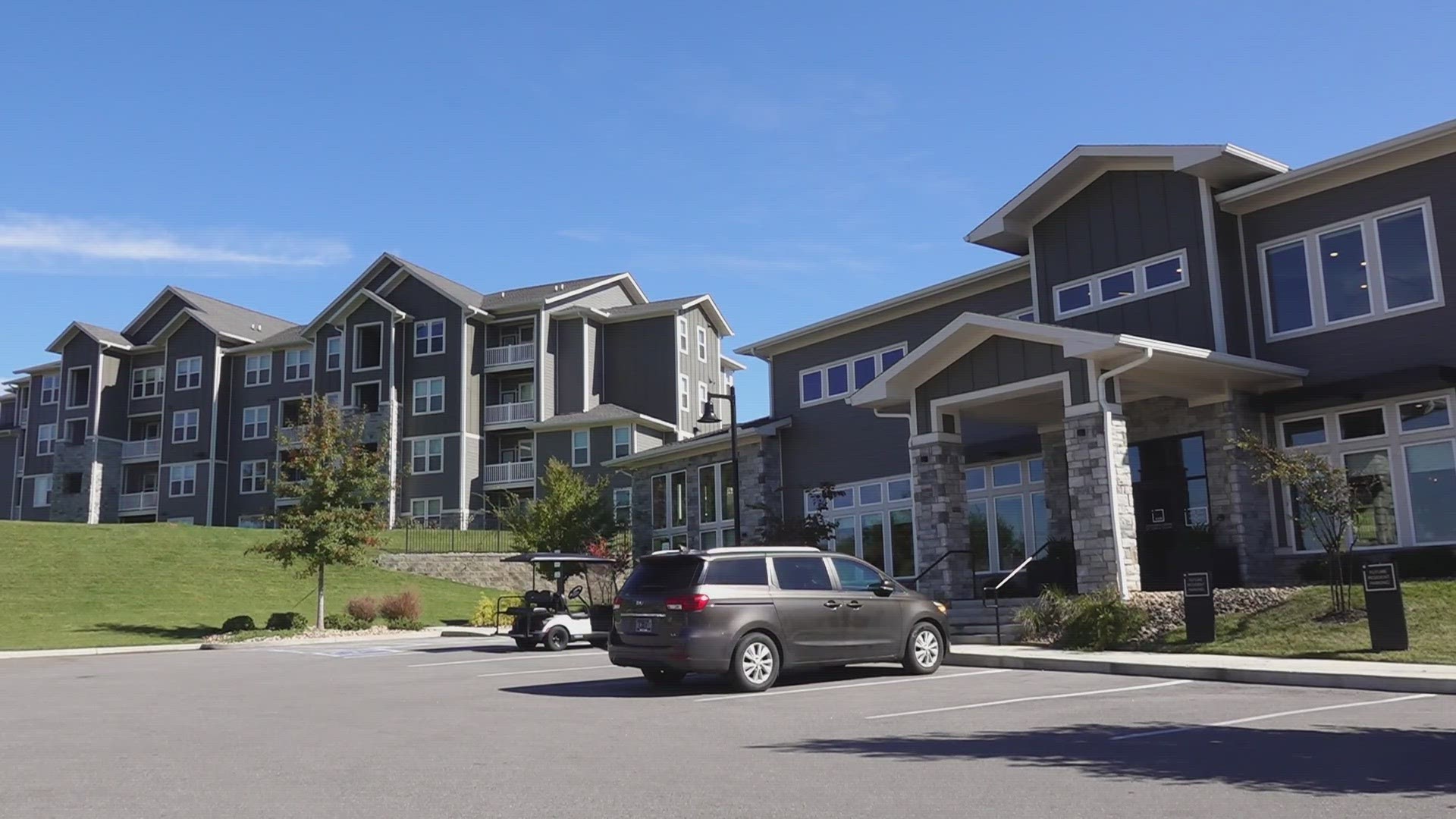KNOXVILLE, Tenn. — Knoxville City Council met Tuesday evening to vote on an agenda that includes three proposals aimed at improving the supply of affordable housing in the city.
One of the resolutions gave Mayor Indya Kincannon more tools to "increase the affordable and attainable housing supply." It allows older housing developments built before 1990 the chance to participate in a "Payment in Lieu of Tax" program. "Missing Middle Housing" developments would also be able to participate in these kinds of programs.
"Unsubsidized affordable housing developments built prior to 1990 are the largest source of affordable housing in Knoxville and these properties have been described by affordable housing practitioners as Naturally Occurring Affordable Housing," the resolution says.
It also says more than 71% of the housing supply in Knoxville is older than 30 years old, and around 47% is more than 50 years old. The resolution allows owners of these housing units to participate in PILOT programs.
Through a PILOT Program, businesses usually have the chance to rent property from a government entity instead of paying taxes on it. This essentially freezes the rate that developers would pay in taxes for a set amount of time before the PILOT program ends and the property turns over to be owned by the developer.
The resolution also expands the Knoxville Affordable Housing Fund and the Affordable Rental Development Program, meant to support the city's efforts to preserve or acquire older housing units and middle housing developments.
It also allows the mayor to use the "Public Private Partnership" process to work with Knoxville's Community Development Corporation and the Industrial Development Board to create new housing supply in different neighborhoods.
"The challenges of the existing housing market and ever-increasing rents, demand a broader and more creative approach to the use of these tools to better address housing affordability. The City is committed to increasing the supply and long-term availability of quality, affordable and attainable, diverse housing options for individuals and families with modest incomes," the resolution said.
The resolution passed with one member abstaining.
Another resolution asks the Knoxville-Knox County Planning Commission to consider allowing rental properties located in residential zones to become short-term rentals, effectively allowing renters to generate more income by renting out their homes on platforms like Airbnb.
It says the city's existing code only allows homeowners to generate this kind of income. It also says landlord approval is already needed if renters want to offer their homes as short-term rentals.
"The shortage of housing supply has caused rental prices to rise at rates that delay homeownership for renters who represent more than half of Knoxville’s residents," the resolution said. "Renters need every opportunity for incremental income to pay increasing cost-of-living expenses and save money for buying a home, potentially, in the same neighborhood where they rent."
It says renters are currently excluded from the chance to make money from short-term rentals, and says they should be offered the same opportunities as homeowners.
The proposal failed after some council members said the city already struggled to enforce existing short-term rental rules. Some other council members said they were worried owners of homes would ask for increased rent after learning renters would be able to make money off a home.
A third resolution on Knoxville City Council's agenda asked the Planning Commission to include a major type of residential zone in the city's Missing Middle Housing proposal, expanding the proposal. It would ask the commission to consider adding RN-1 zones to the housing plan.
Missing Middle Housing is a type of housing that has several units for families in a single building, such as townhomes or duplexes. Leaders previously said they planned to develop these kinds of homes in areas already suited to be walkable, with connections to existing infrastructure. The existing plan would allow these developments in RN-2, RN-3 and RN-4 zones.
Adding RN-1 zones to the plan would allow developers to build Missing Middle Housing in more areas across Knoxville. The resolution said the RN-1 zone would give more opportunity for development than the RN-3 and RN-4 zones combined.
Although the developments may create more housing supply for Knoxville, city council members said leaders would not be able to guarantee rent would be affordable for people in the city.
"We don't want our city to become just one big investment property for investors to come in and build, and build, and build, and we don't have local people here who don't own their properties," said Amelia Parker, a council member.
Seema Singh, a council member, also said there would be no guarantee developers would build affordable housing. Tommy Smith, a city council member, said he believed the city council was overregulating some neighborhoods in the city and that the resolution would make neighborhoods more equitable.
"This is fully intended to provide more housing options and to make the entire strategy inclusive, not exclusive," he said. "Many of those young professions and young homeowners, if they choose to rent within those neighborhoods, should have access to every neighborhood in the TDR. If the Missing Middle proposal is about the TDR, let's include all the TDR ... For this, this includes more opportunity for housing."
Parker said rental prices have continued rising in Knoxville despite more supply being added, and said she didn't believe the government should take a "fiscally conservative approach" to rental prices when it can instead be acquiring properties and working with low-income property developers.
"We can actually work to intentionally develop the housing market that we want. Or, we can pretend that we have to rely on the market. We can pretend that we have to rely on the market, and our Knoxville Housing Authority can continue giving money to a bridge rather than acquiring property for affordable housing," Parker said.
Mayor Indya Kincannon said the city was able to work to provide more affordable housing through the Affordable Housing Fund, KCDC developments, permanent supportive housing and projects like Transforming Western Heights.
The motion carried Tuesday evening.

